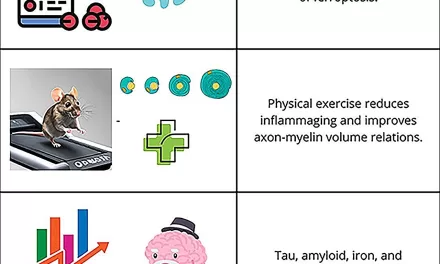Berlin, Germany – Life’s transformative decisions are often the turning points that define our journeys, reshaping who we are and who we might become. Whether it’s leaving a stable career for a new passion, moving across the globe for a fresh start, or making the heart-wrenching choice to end a relationship, these monumental decisions are rarely straightforward.
In a groundbreaking study published in American Psychologist, researchers from the Max Planck Institute for Human Development have introduced a novel framework to better understand these life-altering choices. The study, led by Shahar Hechtlinger from the Center for Adaptive Rationality, highlights the complexity of these decisions and proposes new methods for analyzing them.
Beyond Simplistic Models
“Understanding life’s biggest decisions requires going beyond the oversimplified models often used in the behavioral sciences,” said Hechtlinger. Traditional research on judgment and decision-making has relied on controlled, lab-based scenarios that fail to capture the complexity of real-life choices. Instead, Hechtlinger and her team advocate for a shift in perspective, urging researchers to study decisions as they occur in the unpredictable contexts of everyday life.
To achieve this, the researchers employed a text-based approach, analyzing diverse sources like personal narratives, online forums, and news articles. This methodology enabled them to identify five key dimensions that characterize transformative decisions.
The Dimensions of Transformative Choices
- Conflicting Cues: Transformative decisions often involve competing values that are difficult to reconcile. For example, emigrating to a safer country may mean leaving loved ones behind.
- Change of Self: Such decisions can fundamentally alter an individual’s identity and values, as seen in experiences like parenthood or divorce.
- Uncertain Experiential Value: Predicting how one will feel after making a decision—such as quitting a long-term career—is fraught with uncertainty.
- Irreversibility: Many transformative decisions, like migration or ending a marriage, are challenging or impossible to reverse.
- Risk: These choices often involve significant potential for loss, whether physical, emotional, financial, or social.
Strategies for Navigating Transformative Decisions
To address these dimensions, the researchers proposed simple, intuitive decision-making strategies. For instance:
- The tallying heuristic simplifies complex comparisons by counting the pros and cons of each option without weighing their importance.
- The ideal self-realization strategy encourages alignment with one’s vision of an ideal self.
- The testing-the-waters strategy allows for small, reversible steps before committing to an irreversible decision.
- Risk-reducing strategies like hedge clipping advocate incremental actions that minimize potential harm, such as securing housing before emigrating.
A New Perspective on Rationality
The study also contributes to the theory of ecological rationality, which examines how decision-making strategies succeed when adapted to real-world environments. According to co-author Ralph Hertwig, “Our work extends this theory by integrating subjective dimensions, such as changes in personal identity and values, into the decision-making process.”
By accounting for the interplay between external constraints and an individual’s evolving identity, the framework provides a richer understanding of decision-making in complex, uncertain environments.
Implications and Future Research
The researchers believe their findings have far-reaching applications. Policymakers could design better programs for life transitions, such as migration or caregiving, by addressing factors like risk and irreversibility. Therapists, coaches, and organizations could also use these insights to support individuals navigating transformative choices.
Currently, the team is conducting a large-scale empirical study to test their framework across various life domains, including work, relationships, and family. Future research aims to explore the role of mental health, personality traits, and risk-taking behavior in shaping transformative decisions.
This work offers a new lens through which to view life’s most critical choices, providing tools to navigate them with greater clarity and understanding.
Citation: Shahar Hechtlinger et al., The psychology of life’s most important decisions, American Psychologist (2024). DOI: 10.1037/amp0001439












